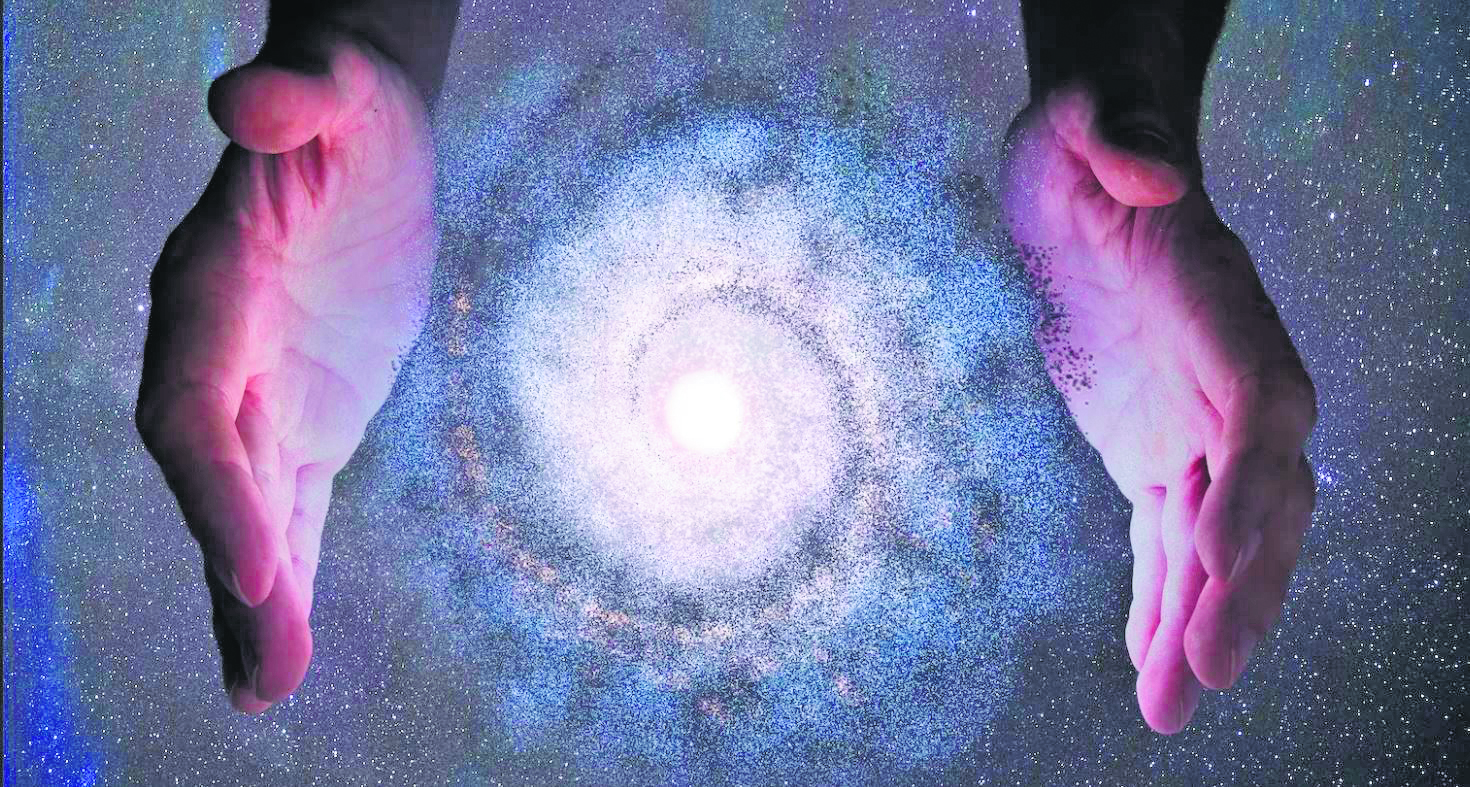The reality of God has often been a subject of spirited discussion. How do we understand this reality? Questions often confront us as we try to decipher the nature and scope of God’s reality in our lives and in the Universe.
The Reality of God in Indian Philosophy
In Indian philosophy, the concept of God takes on various forms and interpretations. The Upanishads suggest that God is the ultimate reality that transcends the limitations of individual identity. The Chandyoga Upanishadsays that “tat tvam asi” which is commonly understood as thou are that. But a deeper look at this Mahavakya suggests the meaning that all of existence is permeated by very finest of essence:sat or what in modern parlance could be read as the God-particle.
Yoga Sutras and the Path to God
The Yoga Sutras of Maharishi Patanjali, a foundational text in Yogaoutlines a systematic path to spiritual realization and union with the Divine. Maharishi Patanjali describes the eight limbs of Yoga, with the ultimate goal being Samadhi – a state of profound meditation and realization of the true nature of reality.God is often seen as the ultimate goal of the yogic journey.
Karma Yoga: Action and Selfless Service
Karma Yoga, as explained in the Gita, emphasizes the path of selfless action and devotion to God. Karma Yoga teaches that performing one’s duties leads to spiritual growth and union with the Divine. The idea that selfless service and dedication to God can be a path to realizing the ultimate reality challenges the notion that God is merely a psychological construct. Instead, it presents a perspective that the divine can be realized through ethical action.
Psychological benefits of faith
There are numerous psychological benefits of believing in a higher power. Faith helps the human mind grapple with existential questions and cope with the uncertainties of life, namely:
=God serves as a comforting narrative, offering solace in the face of mortality, the randomness of events and the inherent challenges of human existence.
=Belief in God provides a sense of purpose, community, and moral guidance.
=The idea of an afterlife, where one is rewarded or punished based on their actions, can imbue life with meaning.
=Religious communities also offer a support system, fostering a sense of belonging and shared values.
=Psychologists explore the human tendency to perceive patterns. This predisposition, they argue, may have contributed to the development of religious beliefs, as early humans sought to explain natural phenomena and navigate the complexities of their surroundings.
The intersection of God’s Reality and Psychology
=Advances in neuroscience have allowed researchers to study the brain activity associated with prayer, meditation, and religious rituals. While some argue that these experiences can be explained solely in terms of brain function, others suggest that the brain may serve as a conduit for accessing higher states of consciousness or connecting with a transcendent reality, as contemplated in Indian philosophies.
=Carl Jung, the renowned psychoanalyst, explored the archetypal dimensions of the psyche and the collective unconscious. He argued that religious symbols and myths are expressions of universal human experiences and shared symbols that tap into the deeper layers of the human psyche.
The Limitations of Human Understanding
When we acknowledge the limits of human knowledge,we allow ourselves to be humble in approaching the question of God. The humility to admit that a purely scientific or factual understanding may be flawed opens the door to a more nuanced and inclusive perspective about the reality of God.
The pursuit of scientific knowledge and the exploration of the mysteries of the cosmos can coexist with a sense of awe and reverence for the unknown. Such a perspective resonates with the worldview of Indian philosophy, where science and spirituality are complementary paths to understanding God.
The author is the director of The Yoga Institute. She is also the president of the Indian Yoga Association and the International Board of Yoga.














